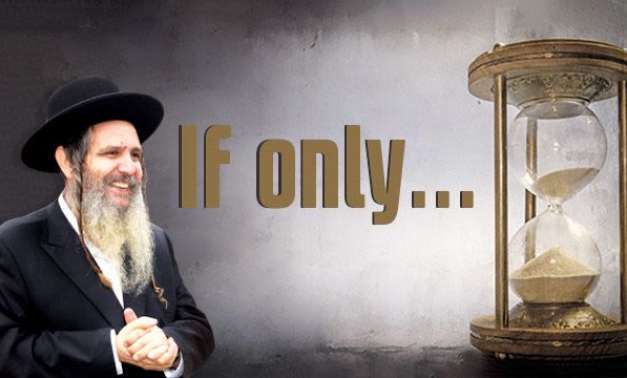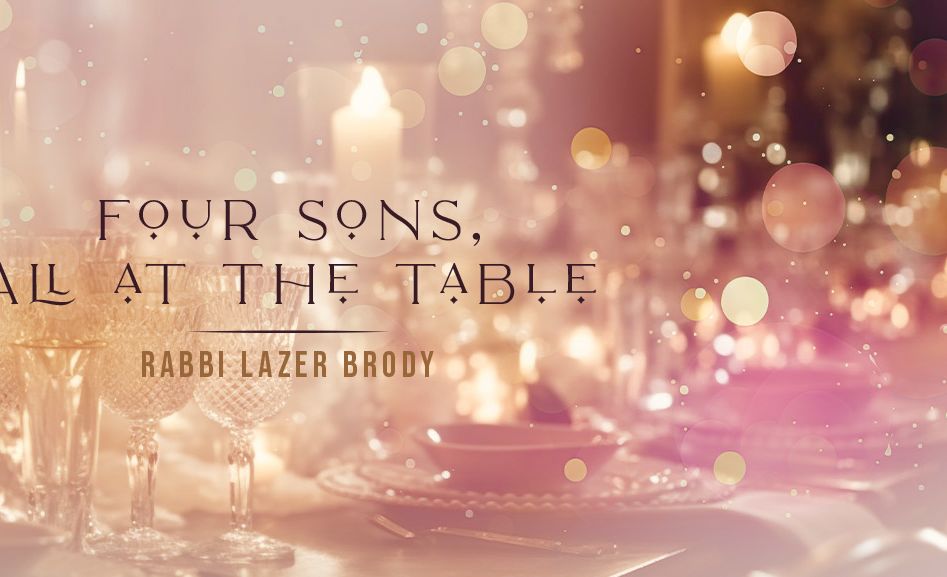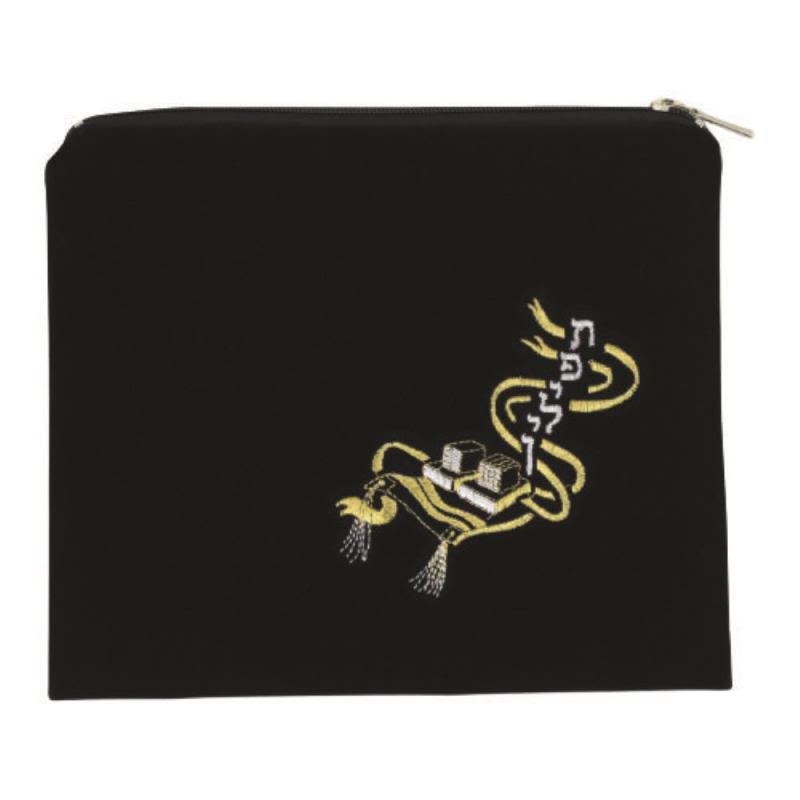
His Wife Was Right
The husband couldn't think of another answer to his wife's arguments against God's behavior. So he conceded, 'My wife, you're right. God should have treated his children better.'

Pesach
“Pharaoh commanded to all his people saying, ‘Every son that will be born — into the river shall you throw him!'” (Shemot 1:22).
* * *
Passover 1756
The Baal Shem Tov’s followers were upset. They sensed that something was terribly wrong with their rebbe. He was not his usual buoyant self.
After the search for chometz on the night before the Pesach Seder, the Baal Shem Tov told ten of his closest disciples to recite Tikkun Chatzot (a midnight prayer to commemorate the destruction of the Temple) with great concentration. While they were in the midst of reciting this prayer, Reb Tzvi (the Baal Shem Tov’s scribe) came running into the room and yelled, “Lord of the Universe! The Rebbe fainted and fell on the floor.”
Everyone was upset, but no one would dare go into the study and disturb the Rebbe.
The next morning before the Pesach Seder, the Baal Shem Tov prayed the morning prayers in a despondent mood. When he finished his prayers, he expounded about ‘Trust in God.’ He explained, “True and complete faith in God can only occur when a person can’t see a way to overcome his problem and, at that very moment, believes without a doubt that God will save him. And most importantly, the person shows this trust and faith in God by being b’simchah (having a joyful attitude). Being b’simchah shows that the person has no doubt that they will soon, with God’s help, overcome his problem.”
As soon as the Baal Shem Tov finished speaking, his mood changed. He seemed more at ease. The followers whispered among themselves, “The change in the Rebbe’s mood is not because of a change in the spiritual decree about which he is no doubt concerned. No,” everyone agreed, “the change in the Rebbe will change the Heavenly decree, God help us.”
In the afternoon of that same day, when the time came to bake the matzot (matzot made just before the Seder are considered the most precious), the Baal Shem Tov’s mood had improved to such an extent that he seemed to be happy. That night, in the synagogue of the Baal Shem Tov, the special evening prayers for Pesach were chanted with great enthusiasm.
After the prayers, the Baal Shem Tov’s close disciples joined the Baal Shem Tov for the Seder. They sat at the Seder table eagerly waiting to hear the Rebbe’s insights on the Haggadah. But this Pesach night was different because the Baal Shem Tov did not expound on the deep mystical meanings of the Haggadah. Instead, he just quietly read the text. The disciples were disappointed.
Near the end of the Seder, the Baal Shem Tov closed his eyes. The disciples looked at each other and asked, “Is he in a state of deep meditation or did he ‘almost’ fall asleep?” The room was silent. Suddenly, the Baal Shem Tov started laughing so hard that he could barely sit still in his chair.
“Mazel Tov!” he exclaimed, “Thanks to God who has chosen the Torah, Moshe (Moses) our teacher and Israel. You should know that even the simplest Jew has the power to change a Heavenly edict.”
The disciples sat speechless as the Baal Shem Tov began to explain, “Yesterday morning, a terrible edict was decreed in Heaven against the Jews of a nearby village. The non-Jewish peasants in that village were planning to attack the Jews on the first night of the Pesach.
“I prayed with all my strength, and I even had you help me. But we couldn’t overcome the Heavenly decree. I finally gave up and put my trust in God that the decree would be rescinded. Right then I started to feel b’simchah. When we sat down to the Seder, the hour for the decree had arrived. I didn’t see any hope for those Jews living in that village. But in a single instant, thank God, everything changed.
“A childless couple who are among my followers and live in that village sat down to their Seder. Although they are simple, unlearned Jews, they are exceptionally kind, devout and full of good deeds. When they reached the section of the Haggadah that discusses the Egyptians throwing the new born baby boys into the Nile, the wife began crying. Her husband tried to comfort her, ‘My sweet wife, don’t be sad, after all the Jewish people were finally taken out of Egypt.’
“The wife replied, ‘If God had blessed me with a son, I would have protected him and not let anyone hurt him. And I certainly would not have let anyone treat my son the way God let us be treated by the Egyptians.’
“The husband stood up for God saying, ‘God is righteous in all that He does. It’s only that we can’t see or understand why it is good for us.’
“But the wife answered back, ‘Why isn’t God more compassionate? How could He have treated us like that? Even if we do sin, we are still His children.’
“And so the argument went back and forth as they worked their way through the Haggadah.” The Baal Shem Tov continued, “During this time, the case against the Jews of their village was being argued before the Heavenly Court. The defending angels were more persuasive when the wife presented her arguments and the accusing angels were more persuasive when the husband presented his rebuttals. I really couldn’t tell what the outcome would be.
“Finally, after completing the fourth cup of wine near the end of the Seder, the husband couldn’t think of another answer to his wife’s arguments against God’s behavior. So he conceded, ‘My wife, you’re right. God should have treated his children better.’
“They started to laugh, got up and began to dance around the Seder table. And at that very moment, the decree in Heaven against the Jews of their village was annulled,” the Baal Shem Tov concluded.
The disciples were mesmerized with the story. Then, the Baal Shem Tov instructed them to place their hands on the shoulders of the person sitting on either side. When the Baal Shem Tov placed his hands on the shoulders of the person sitting on either side of him, the disciples all saw a vision of the husband and wife dancing together around their Seder table celebrating the liberation of the Jewish people from Egypt. The Baal Shem Tov said with a little chuckle, “They should only know that they are also celebrating the liberation of the Jewish people of their own village.”










Tell us what you think!
Thank you for your comment!
It will be published after approval by the Editor.